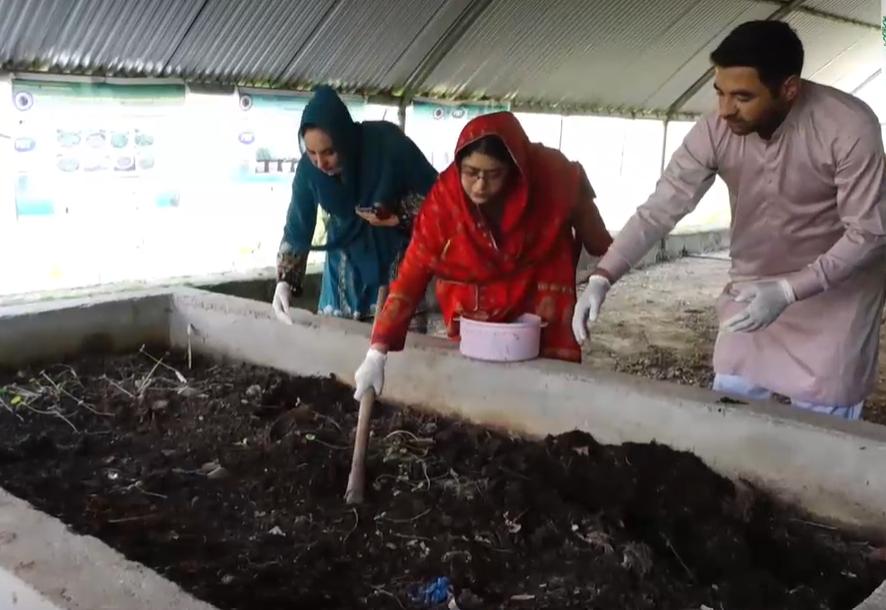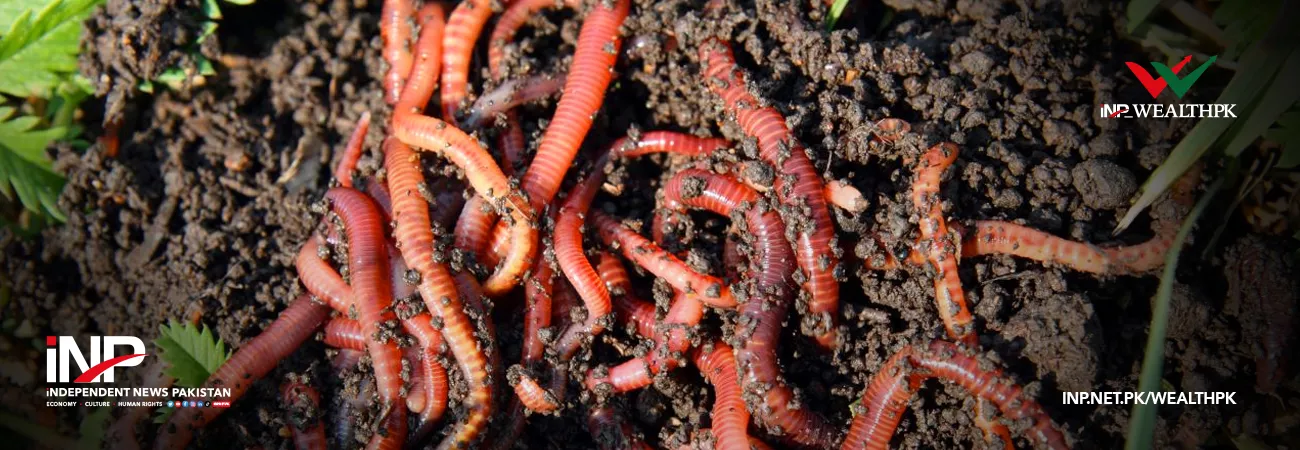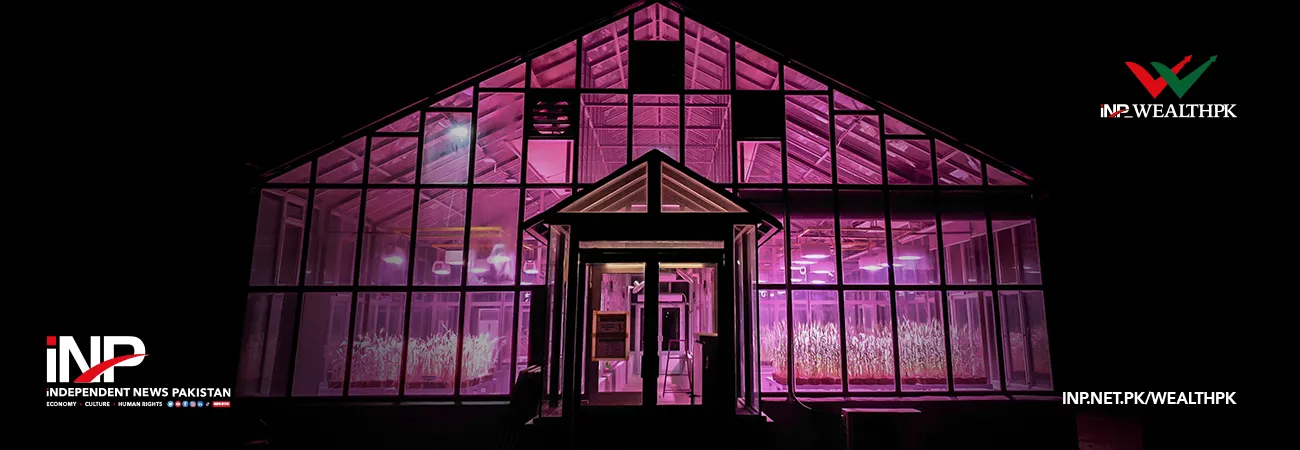INP-WealthPk

Naveed Ahmed
Agriculturalists in Pakistan have developed sustainable biotechnology for producing organic plant feed and managing organic waste using soil worms as excessive use of chemicals in agriculture negatively impacts food quality, soil fertility and the environment, WealthPK reports. Dr Saiqa Andleeb, an assistant professor of zoology at the University of Azad Jammu and Kashmir, told WealthPK that they set up a Vermi-tech unit to promote vermiculture across Pakistan. Vermiculture is a method of decomposing organic matter using certain species of earthworms to create Vermicompost. The process converts waste into organic fertiliser for crops, which increases crop yields, reduces environmental damage and enhances soil fertility. She said that the environmental harms posed by organic wastes are on the rise in the country.
During the past several decades, industrialisation, urbanisation and economic growth created and accumulated enormous amounts of organic waste that affected the environment. In addition, chemically cultivated foods result in an increase in production. However, people worldwide continue to suffer from the adverse health effects of chemically produced food. “In order to overcome this issue, there is a well-established biological process of Vermicomposting that may help to recycle organic wastes. Composting organic waste with the help of controlled temperature, moisture and earthworms can produce stable organic fertilisers,” said Dr Saiqa.
This biotechnology has recently gained popularity as a viable method for the long-term maintenance of both agricultural and environmental systems. In this technique, worms are utilised to manage waste by feasting on the trash and excreting useful nutrients into the soil. This technology will also help to decrease the use of synthetic fertilisers in Pakistan as well as boosts soil fertility and crop yields. The completed compost product is excellent in terms of smell, weed seed and pathogens. “As the composted product can be safely handled, stored and applied to farms, it is the most appropriate and cost-effective waste management technique,” said Dr Saiqa. She said that farmers could enrich their soil and mulch by adding food scraps and other remnants from their kitchen to a compost pile.
“There is a diminished need for physical power because farmers do not need to monitor the temperature or stir the pile since the worms are doing the work,” she added. Complementing the process with Vermicomposting increases the value of nutrients returned to the soil. Vermicomposting helps farmers to keep trash out of landfills and results in nutrient-rich castings that can be used in fields. According to her, conventional composting requires a greater amount of space. However, an eight to 16 inches deep container and just a few square feet in size are ideal for composting in vermiculture. The rate at which compost is produced is very high in vermiculture. A compost pile takes only three months to get ready as compared to one year in traditional methods.
Moreover, the issue of managing solid waste can also be addressed through this technique. Dr Saiqa said that worm composting also has some preventive measures. She advised against overwatering or underwatering the worm bed. Worms eat just about everything, particularly fresh produce, grains, coffee grounds and pasta. Feeding them leftover meat will make a mess and attract parasitic worms or insects. “The results were great in the Vermi-tech unit during the experiment due to Pakistan’s local climate for vermiculture. It is an ideal way to maintain the country’s organic food supply,” she told WealthPK.
Credit : Independent News Pakistan-WealthPk













